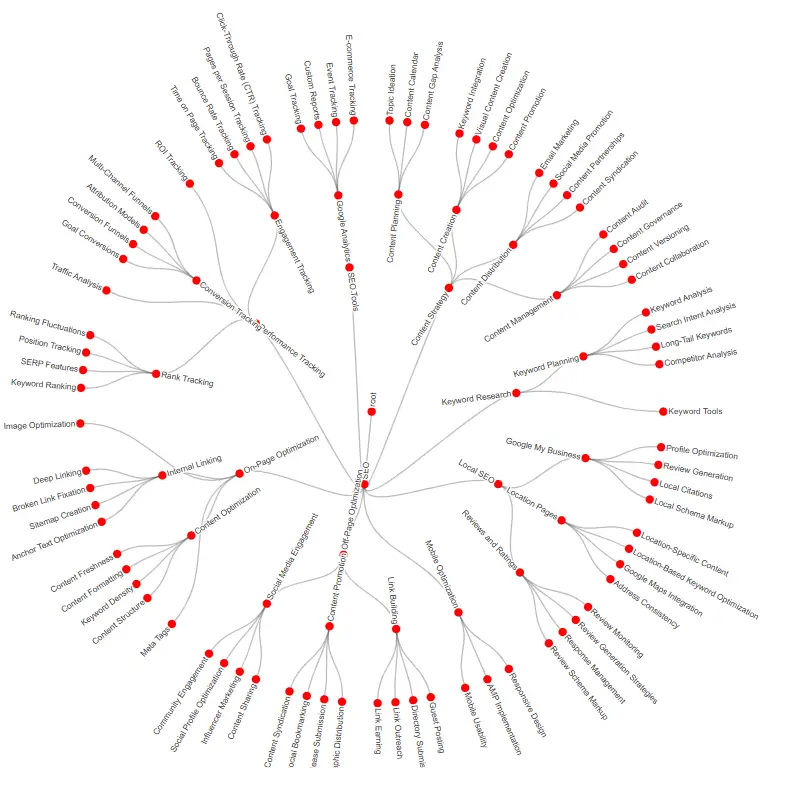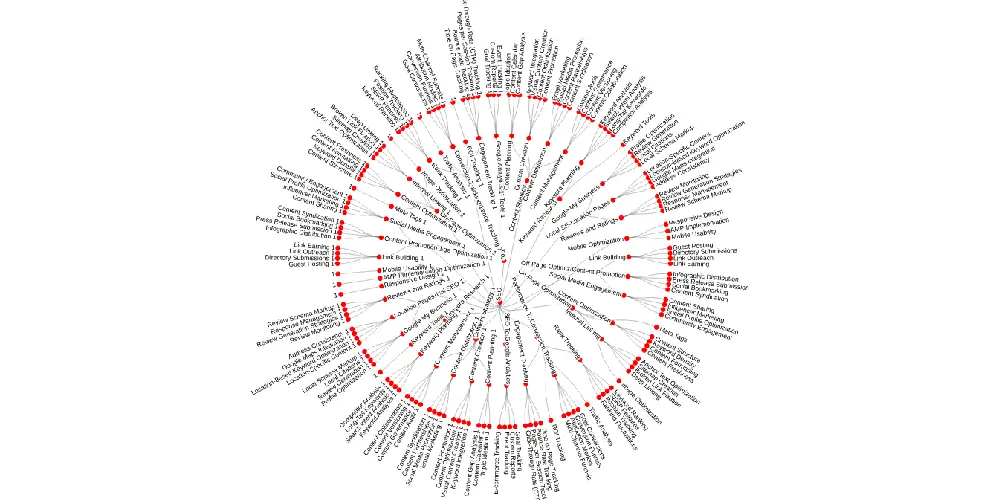Last Updated on September 19, 2025
In the world of Search Engine Optimization (SEO), one crucial factor that can make or break your online presence is Topical Authority. It’s a concept that has gained significant importance in recent years as search engines strive to provide the most relevant and authoritative content to their users. Topical Authority refers to your website’s level of expertise, trustworthiness, and credibility on a specific topic or subject matter.
What is Topical Authority?
Topical Authority is a measure of how well your website or content is recognized as an authoritative source for a particular topic or niche. Search engines like Google use complex algorithms to analyze and determine the topical relevance and authority of web pages. They evaluate factors such as the quality and depth of the content, the structure and organization of the website, and the number and quality of external links pointing to the site.
When a website demonstrates a high level of topical authority, it is more likely to rank higher in search engine results pages (SERPs) for queries related to that topic. This is because search engines aim to provide users with the most relevant and trustworthy information available.
Why Topical Authority Matters in SEO
Building topical authority is crucial for several reasons:
Relevance
Search engines prioritize websites that demonstrate expertise and authority on a particular topic. By establishing topical authority, you increase the relevance of your content to user queries, improving your chances of ranking higher in search results.
Trust and Quality
Websites with topical authority are perceived as trustworthy and authoritative sources of information. Search engines aim to provide users with high-quality and reliable content, giving preference to sites that have established themselves as subject matter experts.
Link Building
Websites with topical authority tend to attract more high-quality backlinks from other authoritative sources within the same niche. These backlinks act as endorsements, signaling to search engines that your content is valuable and trustworthy.
User Experience
Establishing topical authority allows you to create a more cohesive and comprehensive content strategy. This enhances the user experience by providing in-depth information and answering related queries, increasing the likelihood of user satisfaction and engagement.
Authority Metrics
Search engines use various metrics, such as Domain Authority and Page Authority, to gauge a website’s overall authority and trustworthiness. By focusing on topical authority, you can improve these metrics, which can positively impact your search rankings.
Semantic Search
With the advancements in search algorithms, search engines are better equipped to understand the context and relationships between topics. Topical authority helps search engines identify your website as a reliable source for specific topics, improving the accuracy of search results.
Competitive Advantage
In highly competitive niches, establishing topical authority can give you a significant advantage over competitors. By positioning your website as an authoritative resource, you can attract more organic traffic and gain a larger share of voice in your industry.
Topical vs. Domain Authority
Think of domain authority like a person’s overall reputation, and topical authority like their expertise in a specific field. Domain authority is about how trustworthy and well-known a whole website is across the internet – kind of like a general reputation score. Topical authority is more like being the go-to expert in one specific area. For example, a website might have good domain authority if lots of other sites link to it, but topical authority means it’s seen as the ultimate resource on a particular subject – like being the world’s best cooking website if you write incredibly detailed, comprehensive articles about cooking techniques, recipes, and kitchen tips. Search engines love websites that show deep, expert-level knowledge in a specific niche, so building topical authority can help your content rank higher for related searches.
How to Build Topical Authority (8 easy steps)
Building topical authority is a strategic process that requires consistent effort and a comprehensive approach. Here are some key strategies to consider:
Step 1: Conduct Thorough Keyword Research
The foundation of building topical authority lies in identifying the core topics and subtopics relevant to your niche. Conduct extensive keyword research to understand the terms and phrases your target audience is using to search for information related to your topic. Utilize tools like Google Keyword Planner, SEMrush, or Ahrefs to gather insights into search volume, competition, and related keywords.
Step 2: Create topical maps

After identifying the relevant keywords through keyword research, it’s crucial to organize them into a topical map or content cluster. A topical map is a visual representation of how different keywords and sub-topics relate to the main topic or theme. This is usually done with online available topical map creator tools. This helps you structure your content strategy and create a cohesive, interconnected web of content. Start by placing your primary keyword or topic at the center, and then branch out with related sub-topics and supporting keywords. This approach not only aids in creating a comprehensive content plan but also facilitates internal linking, which is essential for reinforcing topical authority. By mapping out your content topics and subtopics, you can ensure that your website covers the subject matter comprehensively, providing a seamless user experience and demonstrating your expertise in the field.
Read More: How to create a comprehensive Topical Map for your website – Best practices shared
Step 3: Create High-Quality, Relevant Content
Once you have identified the relevant keywords, focus on creating comprehensive, in-depth content that addresses those topics thoroughly. High-quality content (using EEAT framework) that provides value to your audience is essential for establishing your website as an authoritative source. Structure your content in a logical and readable manner, using headings, subheadings, and multimedia elements to enhance the user experience.
Step 4: Internal Linking Strategy
Internal linking plays a crucial role in building topical authority. By strategically linking related content within your website, you create a web of interconnected pages, reinforcing the relevance and authority of your content on specific topics. Follow best practices for internal linking, such as using descriptive anchor text and ensuring a natural flow between related pages.
Step 6: External Backlinks and Outreach
While creating high-quality content is crucial, it’s also essential to earn backlinks from other authoritative websites within your niche. These backlinks act as endorsements, signaling to search engines that your content is valuable and trustworthy. Engage in effective outreach strategies to build relationships with industry influencers and publications, and explore opportunities for guest posting, content collaborations, or resource listings.
Step 7: Regular Content Updates and Optimization
Topical authority is not a one-time achievement; it requires ongoing effort and maintenance. Regularly update your existing content to keep it fresh and relevant, incorporating new insights, statistics, and information. Additionally, periodically review and optimize your content for new or emerging keywords to ensure that you remain an authoritative source on the topic.
Step 8: Leverage Social Media and Community Engagement
Social media platforms and online communities provide valuable opportunities to distribute your content and engage with your target audience. Share your content on relevant social channels and participate in industry-specific forums or discussion groups. By actively engaging with your community, you can establish yourself as a thought leader and reinforce your topical authority.
Measuring Your Topical Authority
To track your progress and make data-driven decisions, it’s essential to measure your topical authority. Various tools, such as Ahrefs, SEMrush, and Moz, offer metrics and reports that can help you evaluate your website’s topical authority. Key metrics to monitor include:
- Search engine rankings for relevant keywords
- Organic traffic from topically relevant searches
- Engagement metrics like time on site and bounce rate
- Number and quality of backlinks from authoritative sources
Case Studies and Examples
Several brands have successfully established themselves as topical authorities in their respective niches. For example, HubSpot is widely recognized as an authority in the field of inbound marketing and sales software, while Ahrefs has become a go-to resource for SEO and digital marketing professionals. These brands have achieved their topical authority through consistent, high-quality content creation, strategic link building, and active community engagement.
Conclusion
Building topical authority is a long-term investment that requires patience, dedication, and a strategic approach. By following the strategies outlined in this blog post, you can position your website as an authoritative source within your niche, increasing your chances of ranking higher in search engine results, gaining user trust, and driving more relevant traffic to your site.
Remember, topical authority is not a one-size-fits-all solution; it requires a tailored approach that aligns with your specific goals and target audience. Consistently evaluate your efforts, measure your progress, and make adjustments as needed to ensure you remain an authoritative voice in your industry.
- Top AI Marketing Tools in 2026 - December 2, 2025
- Best SEO Content Optimization Tools - November 13, 2025
- People Also Search For (PASF): The Complete 2025 Guide to Smarter SEO Optimization - November 11, 2025




